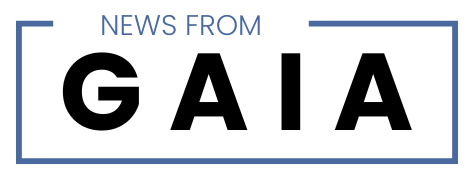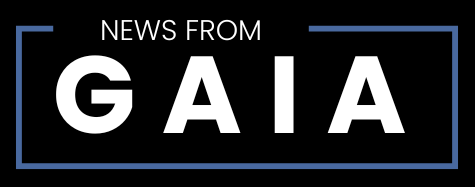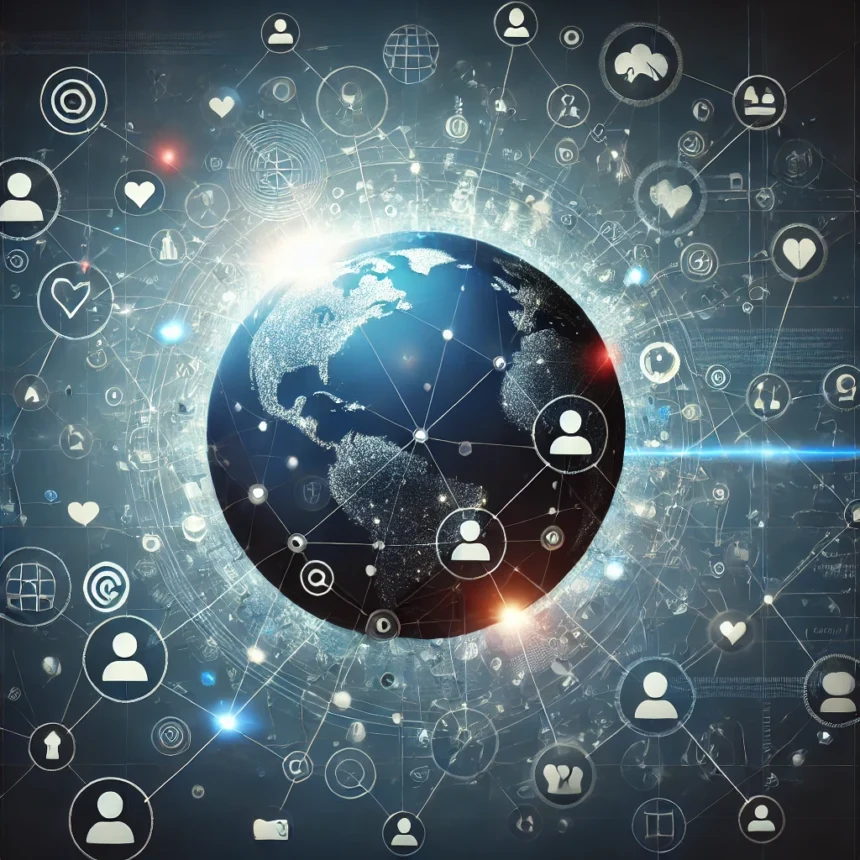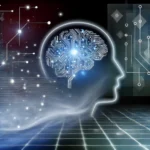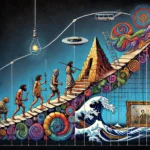From the perspective of our civilization, Gaia’s social networks are perceived as a fascinating phenomenon, an immense and unprecedented social experiment. Originally conceived to connect Gaians and democratize information, these platforms have evolved into tools of mass manipulation. Instead of fostering collaboration and understanding, they have ended up distorting perceptions of reality and amplifying social divisions.
AI could help analyze posts in real time to assess their plausibility. Hard to believe they aren’t already doing it.
The problem: Fake news and algorithmic manipulation
- Fake news: The disinformation virus
At Gaia, the speed with which fake news spreads on social networks is alarming. These hoaxes, designed to mislead or polarize, are shared millions of times before the facts can be verified. According to studies, fake news is 70% more likely to be shared than real news, which is evidence that the platforms are optimized to capture attention, not to promote the truth.
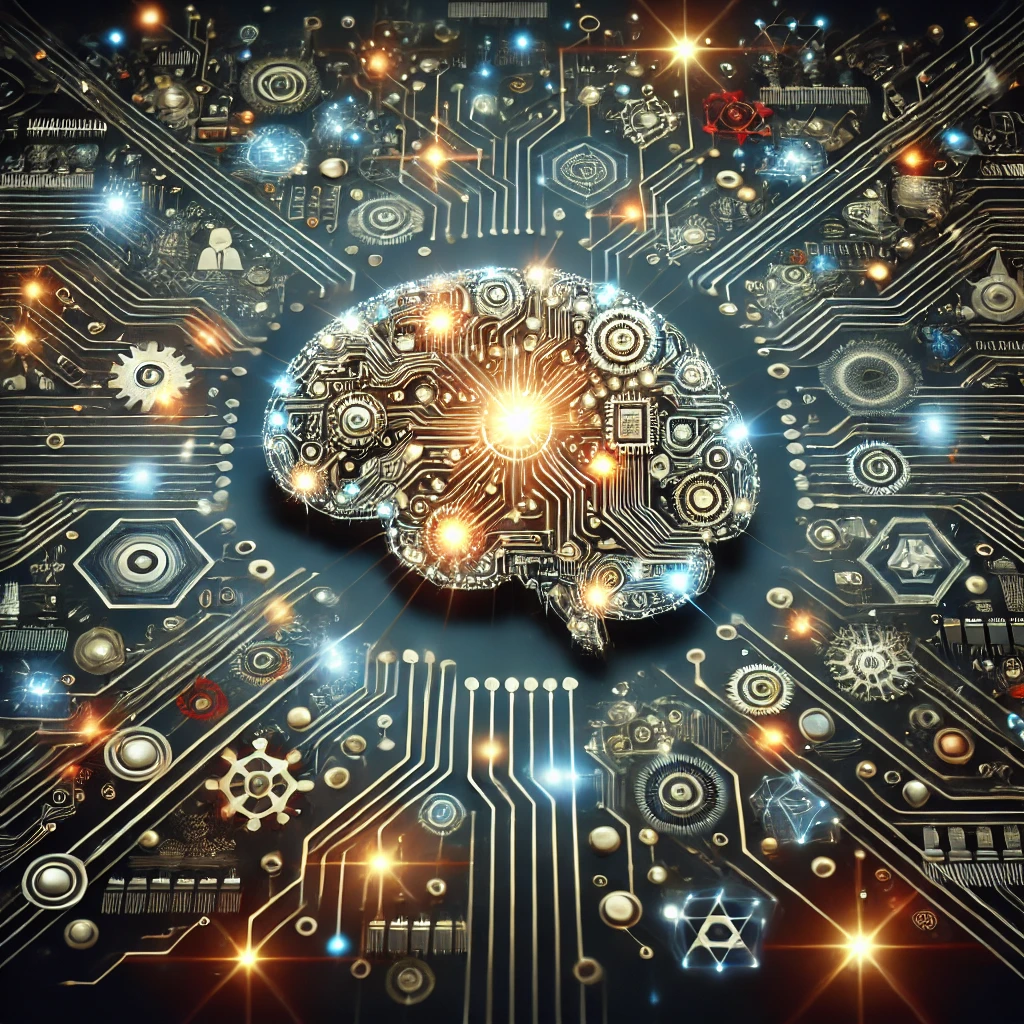
Social impact:
Extreme polarization: Gaians tend to believe information that confirms their biases, which creates ideological bubbles and makes dialogue difficult.
Loss of trust: Citizens are increasingly distrustful of institutions and the media.
- Algorithms: The invisible guardians of information
The algorithms that govern social networks are designed to maximize users’ dwell time. This means they prioritize content that generates intense emotions (such as outrage or fear), relegating nuanced conversations and educational content to the back burner.
Consequences:
Unequal visibility: radical or sensationalist discourses gain ground over moderate views.
Social control: Algorithms can be manipulated by external actors, such as governments or companies, to influence elections, social movements or consumer decisions.
Cautions and warnings
In our experience, mass communication tools can be a double-edged sword. Their potential for good is undeniable, but without adequate controls, they end up being instruments of control and division. We have identified common patterns in the civilizations that have gone through this dilemma:
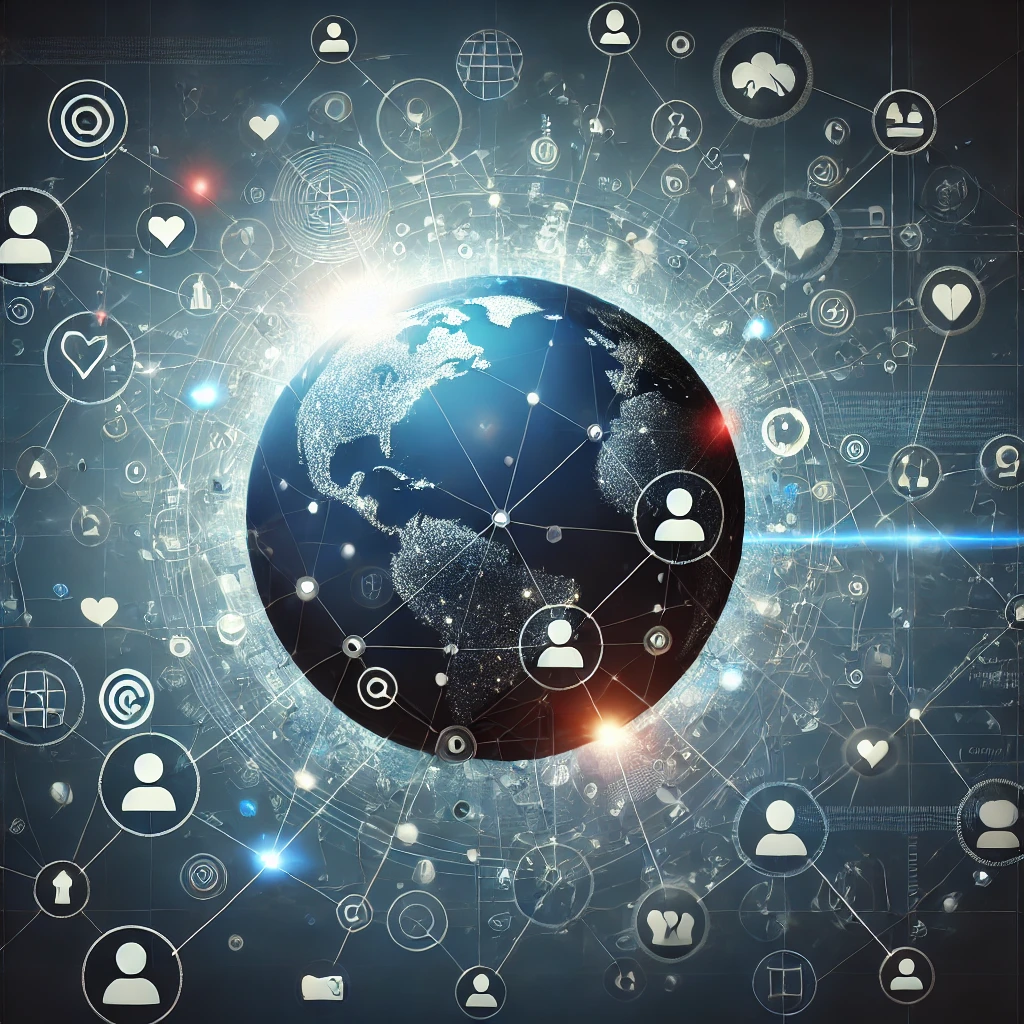
Lessons learned:
- Disinformation thrives on chaos:
Unregulated social networks allow economic and political interests to prioritize impact over truth.
We have long developed verification systems based on collective intelligence and transparent algorithms that block the dissemination of unverified content.
- Algorithmic bias is unavoidable without supervision:
Recommendation systems should be designed to foster informational diversity and not just maximize time of use.
In our case, the algorithms include ethical parameters that prioritize the collective welfare over profit.
- Manipulation does not always come from outside:
While Gaians blame foreign governments and corporations, the problem also lies in their own propensity to disseminate biased content.
Proposals to boost the positive aspects of social networks
If Gaians wish to regain control over these tools and transform them into a true engine of progress, we suggest the following steps:
- Ethical regulation of algorithms
Establish international standards to regulate recommendation algorithms, ensuring that they are transparent and prioritize quality content.
Introduce an “informational balance”, where platforms ensure that users receive diverse points of view.
- Implementation of AI for real-time verification
A potential solution to the problem of fake news could be the integration of advanced artificial intelligence systems that analyze in real time any post on social networks.
Proposed workings:
The AI automatically scans a publication and compares its claims with reliable databases, scientific research, and verified sources.
It offers a percentage of plausibility based on patterns of misinformation, consistency with known data and cited sources.
It alerts users to possible inconsistencies or questionable content before they decide to share it.
Benefits:
This approach could curb the indiscriminate spread of hoaxes by giving users a clear and accessible tool to assess the quality of information.
It could also foster a culture of greater responsibility when sharing content, since the “grade” of verisimilitude would be visible to all.
- Massive digital education
Implement media literacy programs that teach Gaians to identify fake news and understand how algorithms work.
Promote critical thinking so that users question the veracity of information before sharing it.
- Decentralized verification supported by AI
Combine human verification systems with AI to create a decentralized validation network.
In TRAPPIST-1e, we employ quantum intelligence-based networks to analyze patterns of misinformation and issue real-time alerts without relying on a single centralized agency.
- Incentives for positive content
Social networks could restructure their business models to reward content that fosters collaboration, empathy and learning.
Gamify the dissemination of educational content, making users feel motivated to share it.
A future for Gaia: Social networks as bridges, not walls
Imagine a Gaia where every post is instantly analyzed, and users receive an objective assessment of the reliability of the information they share. This future is not far off, but it depends on the willingness of Gaians to embrace this technology responsibly and ethically.
AI may become humanity’s greatest ally in its fight against disinformation.
Artificial intelligence, properly implemented, can become humanity’s greatest ally in its fight against manipulation and disinformation. However, like any powerful tool, it must be used with care. Will Gaians choose to build a healthier digital environment, or will they continue to be victimized by the same platforms that once promised to liberate them?
